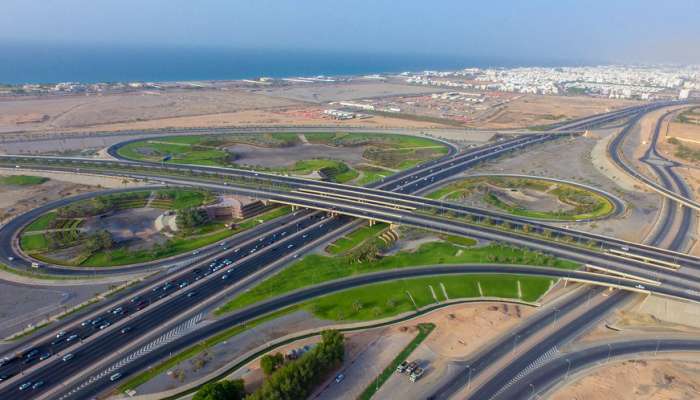
Muscat: Naming several landmarks in the Sultanate of Oman after the names of leaders and icons of Oman reflects the Royal Vision of His Majesty Sultan Haitham bin Tarik on preserving the deep- rooted cultural and historic heritage of Oman and boosts the values, national identity and loyalty to the country.
Oman enjoys a deep-rooted heritage dated back to thousands of years in the various fields.
The Royal directives on naming some main roads in Oman after national and historic personalities make glorious the deep-rooted history of Oman.
The road linking the governorates of Muscat, Al Dakhiliyah, Al Dhahirah and Al Buraimi is named after Sultan Thuwaini bin Said and Al Sharqiyah Expressway is named after Sultan Turki bin Said while Khasab-Lima, -Dibba Road in Musandam Governorate is named after Sultan Faisal bin Turki.
Al Batinah Coastal Road is named after Sultan Taimur bin Faisal while Muscat –Al Batinah Road is named after Sultan Qaboos.
The renamed roads are added to the landmarks bearing names of Oman’s historic personalities, including the names of military camps and bases, schools, mosques, and lecture halls at the educational establishments.
A number of specialists in the field of history and education spoke on the historic and cultural dimensions for naming a number of achievements after the names of the Sultans and iconic personalities of Oman.
Dr. Mahmoud Abdullah Al Abri, Secretary of Oman National Commission for Education, Culture and Science (ONCECS), said that the Royal Directives of His Majesty Sultan Haitham bin Tarik naming some main roads in the Sultanate of Oman reflects the Omani concern with cultural heritage.
Naming strategic roads after the names of the Sultans sends a clear message on the role those leaders played in Omani history, he added.
Oman has been, across history, a centre for cultural and trade, he said, adding that Oman has also emerged as a maritime and cultural power that affected the regional and international surrounding arena.
Dr. Badriya bint Mohammed Al Nabhani, a researcher in history, said that Oman has a rich heritage dating back to thousands of years.
His Majesty Sultan Haitham bin Tarik’s concern with this deep-rooted heritage aimed to transfer this heritage to the current and upcoming generations.
Naming the roads after the names of the Sultans of Oman boosts the loyalty to the nation and the national identity, she added.
Prof. Saif bin Nasser Al Maamari, Head of the Curriculum and Instruction Department at the College of Education at SQU, said that the Royal Directives of His Majesty the Sultan renaming main roads after the names of great Sultans reflects and cements the march of renewed renaissance and the national identity in the various spheres.
Researcher in Oman’s history Dr. Bahiya Said Al Azobi, said that Oman’s history is rich with renowned personalities who played key roles in building the state and shaping its political, social, economic and cultural features.
She said that naming some roads after the names of the Sultans plays a key role in unifying the Omani tribes and in preserving the solidarity of the state and in wisely handling the internal issues and cements the foundations of the modern state.
Dr. Mohmmed bin Said Al Muqadam, Researcher in Oman’s history, said that the Royal Directives on naming roads comes within a cultural context aimed to showcase the Omani history as seen in the schools and mosques named after Sultans and historic and iconic personalities of Oman, he added.____